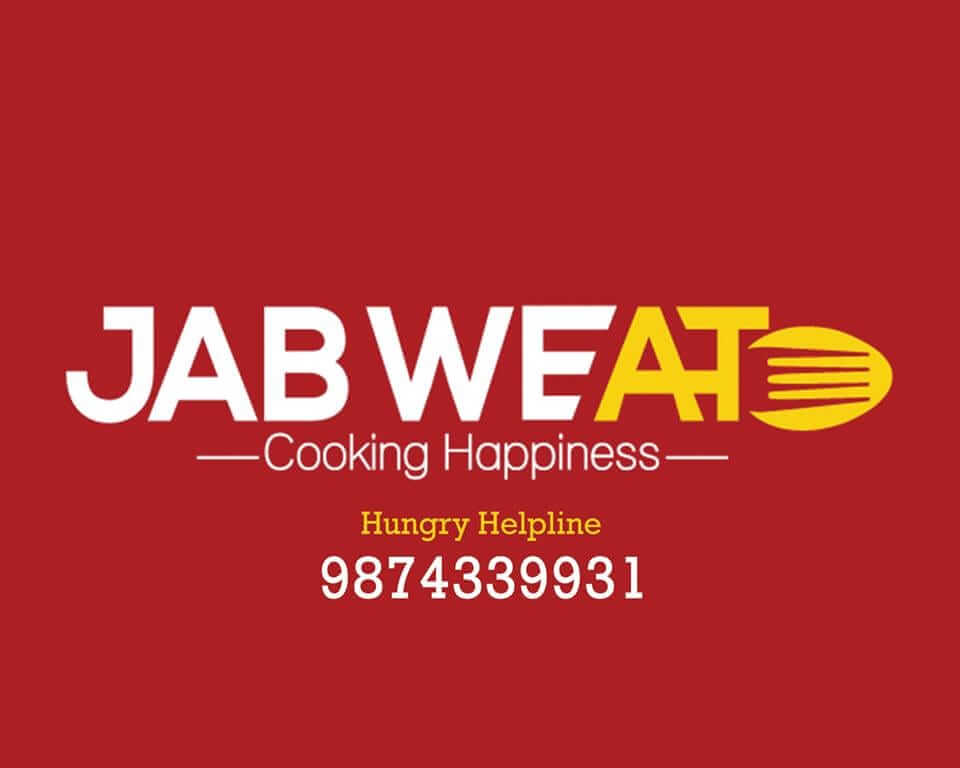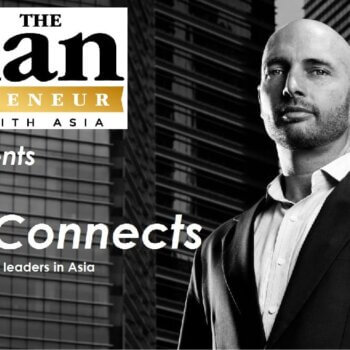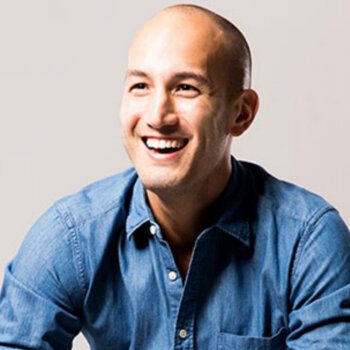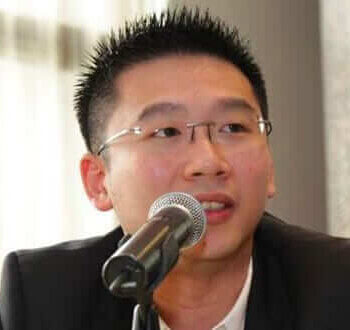Please write us a short bio of yourself.
I belong to a conservative business oriented family and have been born and brought up in the city of joy, Kolkata. Kolkata has always been famous for its food culture and that brings out a big foodie in me. After completing my Exeuctive Planning in Business Management from IIM Calcutta, I started Jab We Ate. I have always been involved into digtial marketing and have worked with top class digital agencies of Kolkata, handling sales and marketing there. I am big Nachos addict and I love writing. I am also working on my first book and will release it soon. For me my failures are my biggest strength, I believe if you haven’t failed in something, you haven’t achieved anything. At Jab We Ate, I call myself as “Chief Eating Office” (CEO).
In your own words what is Jab We Ate?
Jab We Ate is an on demand food solution providing company where we are serving typically home cooked food with varied cusines like Indian, Italian, Mexican, Chinese, Thai and so on. Along with this, we have our own set up for bakery where we are baking and making customized cakes, cupcakes, desserts for any occasion like Birthdays, anniversary, baby shower, Bachelor parties, wedding etc. Moreover, we are also running an initiative that is called “Be your own chef” where anyone who is enthusiastic about cooking can register with us for free. They cook as a home chef for Jab We Ate and we get those dishes delivered to the right belly across Kolkata.
How did you come up with the idea of Jab We Ate?
Someone very close to me told me one day, “Love cannot be described, it must be tasted”, so I came up with an idea to fill the foodie’s belly with most relished home made food!!!
If you are someone staying away from home, you may relate to this. What do you miss the most about home? For foodies, the answer to that would be of course ‘Maa ke hath ka khana’. Often, we are challenged with the question – ‘Aaj Khaane mein kya hai?’ It is a crisis, no less, for many who are in a situation where there is no time to cook and eat healthy, home-cooked food.
I started Jab We Ate on a mission to solve this problem. We are on-demand, food delivery startup with a special focus on healthy desi style, home-cooked food which could be eaten on a daily basis. I wanted to bring simple home-made food as opposed to the lavish exotic sort to the corporate community as well.
I was in Mumbai for a project when after few days I started missing my home cooked food. I realized like me so many people shift their base from their home town in search of job and living. Most important thing which they miss is their home cooked food and hence Jab We Ate happened.
Could you walk us through the process of starting up Jab We Ate?
There are no big shots involved in Jab We Ate. I seed funded it and have invested everything from my savings. After 6 months of extensive research on business models, opinion polls, and deciding on the various intricacies like the vendors, the venue, the brand name, taglines, color combination and every minute things, I started Jab We Ate with a dream in Kolkata.
I had to understand everything from the working of a kitchen, the sourcing of ingredients, the food storage and the menu. The work that we put in, from fixing the menu to the daily running of the place has probably been my biggest strength.
Soon I hired bikers and started delivering food from one location in Kolkata to another. Slowly we also started delivery food post mid night specially for IT class and BPO sector. It became a hit and we started cooking in two shifts. We deliver all cuisines, desserts and we are specialized into customised cakes too.
Did you encounter any particular difficulties during startup and if so, how did you guys overcome it?
The biggest challenge in this industry is serving good quality hot food with complete freshness. At Jab We Ate, we work on a zero inventory model and start cooking food only when the order is placed, avoiding any kind of wastage. Hence, the food is cooked fresh every day, and that is what makes us stand out in the crowd.
Second most challenging factor is retaining of delivery boys. It was not at all easy to find people who were good with road sense as well as educated enough to operate smartphones. There has been lots of time where I have myself went to deliver food to customers.
We did lot of R & D to overcome these challenges. The first step was to cook fresh food everyday. We decided that we will cook only when the order is placed. Serving hot and fresh food to your customer has its own advantages.
Secondly motivation is key for people and apart from commercial interests, freedom of working on your own way becomes very important i.e. to do things the way they want. We taught the delivery boys the advantages of using watsapp and sms. They appreciated the fact and understood the efficiency of these technologies.
How have you been developing Jab We Ate since startup (i.e. what’s the developmental direction)?
It is very important to keep a track what your competitors are doing. I always try to avoid what they are doing and try to bring something new out of it. Who will deliver you “Ghar ka Khana” post mid night? This was something gave us a good rise. At Jab We Ate, I am managing sales, marketing and operations while I have outsourced logistics to another start up friend of mine. I have my chefs plus I have other home chefs who are always excited to work with us.
What kind of feedback did you get for Jab We Ate so far?
Touchwood not a single negative feedback in regards to food till date. People do complain about timely delivery but then it all depends upon traffic. There are many customers who asks me, “Saurabh, why do you charge extra for delivery”? Very politely, I answer them “Sir, I wish my bikes could run on water”. I believe you cannot afford to eat outside everyday, you need that home cooked food too. I started with lot of variety in terms of thali system like Punjabi Thali, Rajasthani Thali, Chinese Thali, Only Rice Thali, Italian Thali, Mexican Thali, even only starters thali and so on.
Do you face a lot of competition in this industry ? What is your strategy against your competition?
I see lot of people starting same line of business in Kolkata i.e. the Thali system. I have also seen people selling thalis almost at 50% lesser cost to which I sell.
Still I was firm I will not reduce the costing. It depends on quality of the food. We only cook food in refined oil and our main USP is we work on zero inventory model. You need to pre-book your meals and we cook only if we get an order. None of them delivers food post mid night so that is something we are beating them out at.
There are companies who are selling either 1-2 cuisines or veg/Non veg. We at Jab We Ate selling all the cuisines, desserts, ice creams, platters, etc.
What can you tell us about the industry? Have you developed any industry insights that you could share?
I have always believed that a hungry customer is an angry customer. Food in India is a very big deal and if its reaching you at your doorstep it definitely stands out.
The food delivery market in India is worth $1.6 billion, growing at almost 32% a year. At Jab We Ate, our average order size is Rs. 400.
In food delivery industry main consumer might be a workaholic, a DINK (double income no kids) or maybe a complete family. Many consumers are too busy or too lazy to cook. I have seen that most consumers prefer ‘clean and well-packaged’ food for office orders. Unfortunately, most orders are placed in narrow time bands during lunch and dinner, making it difficult for us as well as for our delivery partners. We used to stand in front of IBM office in Sector 5 area of Kolkata with questionnaires to better understand food needs of our customers,”. No wonder, Even if you aren’t a hardcore foodie, you can’t but help notice that India’s food tech startup sector is as hot as Indian food itself and growing rapidly.
What is the future of the industry and how do you plan to stay relevant in this industry?
The food ordering industry is also subject to wild price fluctuations due to volatility in fuel and agri markets. Challenges will always increase, it will never stop.
But what is important is an attitude of thoroughness, quality and creativity which will help Jab We Ate to succeed. There are new opportunities not just in food, but in food for thought i.e. analytics. For example, Pizza accounts for only 6-8% of India’s food market – but there is no single Indian player who is even a tenth of Domino’s size. And once you start with servicing the home kitchen market, you can scale to the office and canteen markets and expand from cooking food to marketing restaurants too.
Were there anything that disappointed you initially?
When we started we had difficulties in delivering far off areas. Logistic is still a very big challenge in Kolkata. I wish we had some really good startups for delivering food in Kolkata. After I tied up with a logistic partner, things came to track again. It was a big headache for me. That time I realized and learnt that you should focus only on things you are good at. You cannot do everything alone.
What do you think about being an entrepreneur in Asia? Is it harder or easier, why?
Nothing is easy in life. I wish being an entrepreneur was a cake walk. Being passionate is very important in life. If you are passionate about what you are doing, even putting your luxury on risk becomes smoother. Secondly, Patience is a key to fight against any challenges that comes your way. Most importantly, Team Work -It should be there. It makes work faster and more efficient.
For me starting Jab We Ate was not easy at all. Lot of R & D was done before I officially started Jab We Ate. I met lot of people in the same industry across India, met so many logistic companies to check how delivery of food actually works.
What is your opinion on Asian entrepreneurship vs Western entrepreneurship?
I believe we Asians are born with better ideas, but yes as compared to western front, we are restricted in terms of support and technology. Western people have average ideas but have freedom to implement and freedom to experiment. They are not forced to give up upon failure, and here people started blaming and forcing not to make mistakes again. Also I believe the funding opportunities in Asia is much better than in Western countries.
What is your definition of success?
I believe success is when – Whatever you do should make you feel happy. Everyday you should have a motive to wake up in the morning. You should always do 1% things extra than what you did yesterday. If you are able to do this, it defines your success.
Why did you decide to become an entrepreneur?
Coming from a traditional business marwari family is one of the prime reasons I stepped into this journey. Moreover, I have always followed people like Ritesh Agarwal from OYO, Bhavish Agarwal from Ola. It was always so inspiring to read their success stories. If they can do something so big at such a small age why can’t we?
In your opinion, what are the keys to entrepreneurial success?
If plan A doesn’t work, the alphabet has 25 more letters. Keep working hard!! Be a doer, not only a dreamer. You have come a long way to start your startup, don’t give up!!
Any parting words of wisdom for entrepreneurs out there from your personal experience?
Please do not depend entirely on technology. People believe e-commerce is everything and going on only mobile is a big thing. I will never let Jab We Ate go only on mobile apps. Catering to every type of audience is a key to success. There are people who still feel calling and ordering for food is most effective and efficient way.
One most important lesson that I have learnt – There should be a balance between your personal and professional life. Spending time with friends and family is very important. It is the most relaxing and the best stress buster.






























